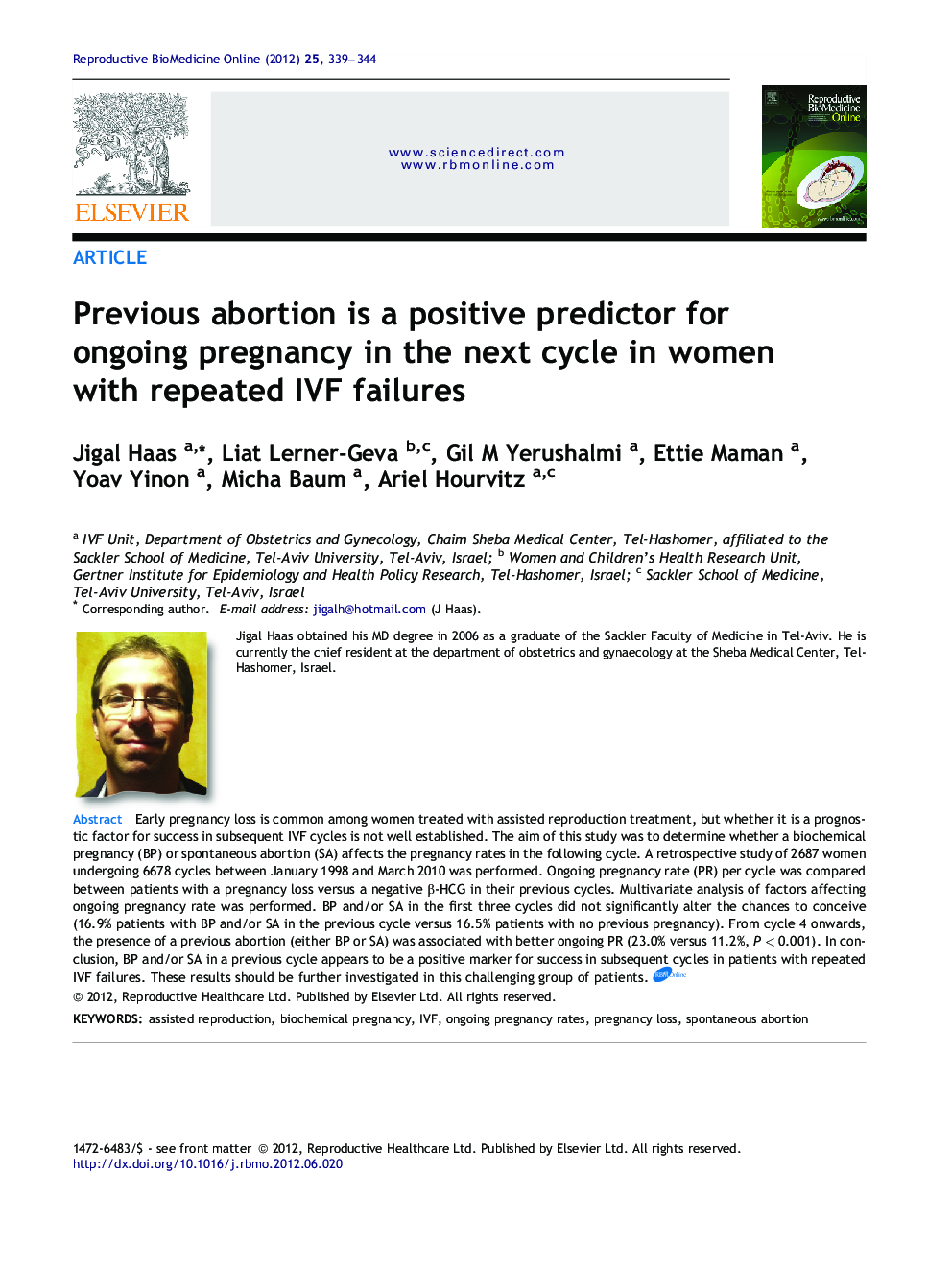| Article ID | Journal | Published Year | Pages | File Type |
|---|---|---|---|---|
| 3970534 | Reproductive BioMedicine Online | 2012 | 6 Pages |
Early pregnancy loss is common among women treated with assisted reproduction treatment, but whether it is a prognostic factor for success in subsequent IVF cycles is not well established. The aim of this study was to determine whether a biochemical pregnancy (BP) or spontaneous abortion (SA) affects the pregnancy rates in the following cycle. A retrospective study of 2687 women undergoing 6678 cycles between January 1998 and March 2010 was performed. Ongoing pregnancy rate (PR) per cycle was compared between patients with a pregnancy loss versus a negative β-HCG in their previous cycles. Multivariate analysis of factors affecting ongoing pregnancy rate was performed. BP and/or SA in the first three cycles did not significantly alter the chances to conceive (16.9% patients with BP and/or SA in the previous cycle versus 16.5% patients with no previous pregnancy). From cycle 4 onwards, the presence of a previous abortion (either BP or SA) was associated with better ongoing PR (23.0% versus 11.2%, P < 0.001). In conclusion, BP and/or SA in a previous cycle appears to be a positive marker for success in subsequent cycles in patients with repeated IVF failures. These results should be further investigated in this challenging group of patients.Pregnancy loss in the first trimester is common among women treated with assisted reproduction treatment, but its significance regarding chances of future ongoing pregnancies is not well established. The aim of this study was to determine whether an early pregnancy loss during an IVF cycle, affects the ongoing pregnancy rates in following IVF cycles. A retrospective study of 2687 women undergoing 6678 IVF cycles between January 1998 and March 2010 was performed. Ongoing pregnancy rate was compared between patients with a pregnancy loss in their previous IVF cycle versus patients who failed to conceive (negative-human chorionic gonadotrophin blood test) in their previous IVF cycle. A multivariate analysis of factors affecting ongoing pregnancy rate including age, number of embryos transferred and aetiology of infertility was performed. We found that early pregnancy loss during the first three IVF cycles did not significantly alter the chances to conceive (pregnancy rates: 16.9% for patients with early pregnancy loss in the previous cycle compared to 16.5% in patients who didn’t conceive in the previous cycle). From cycle 4 onwards, the presence of a previous early pregnancy loss was associated with better ongoing pregnancy rate (23.0% compared to 11.2%, P < 0.001). In conclusion, early pregnancy loss in the previous cycle appears to be a positive marker for success in subsequent cycles in patients with repeated IVF failures.
